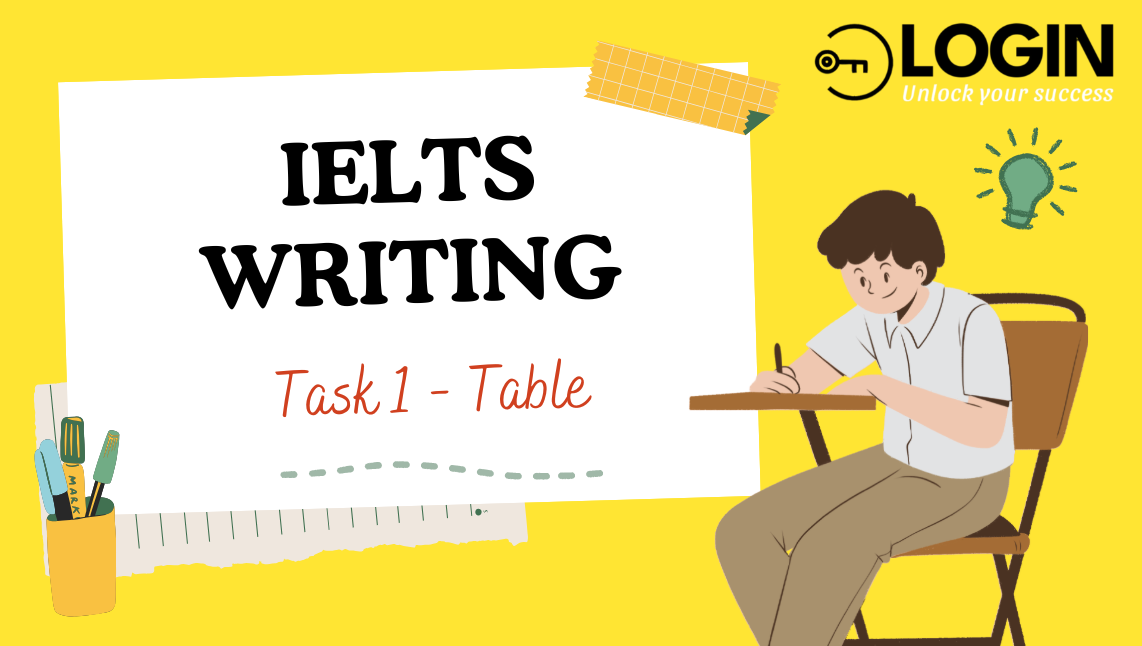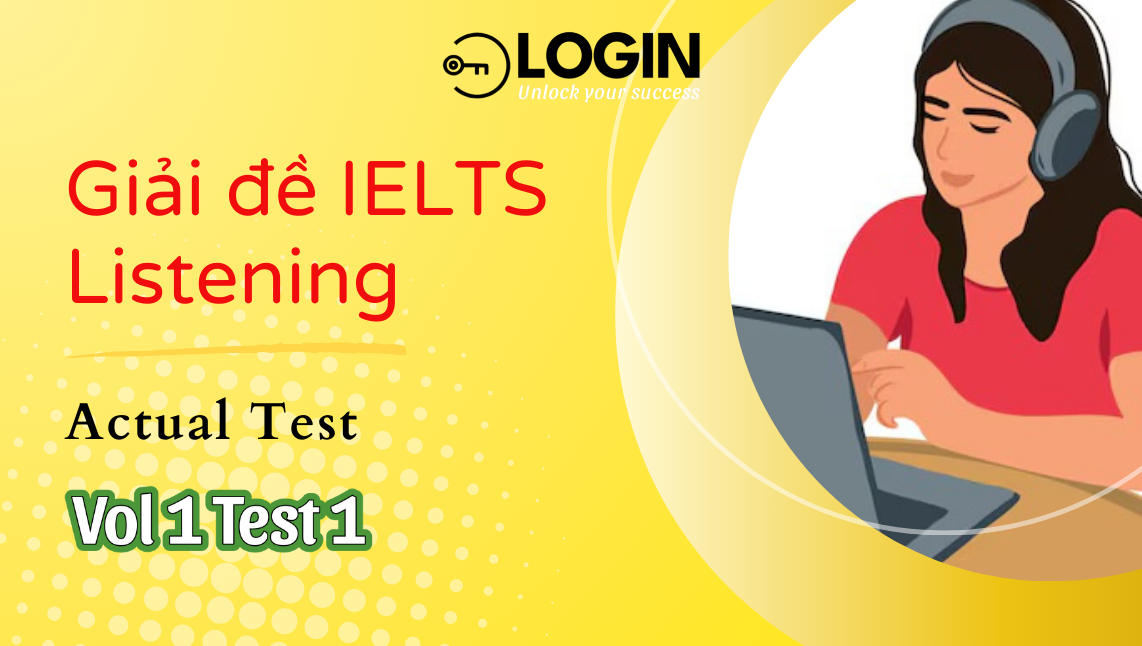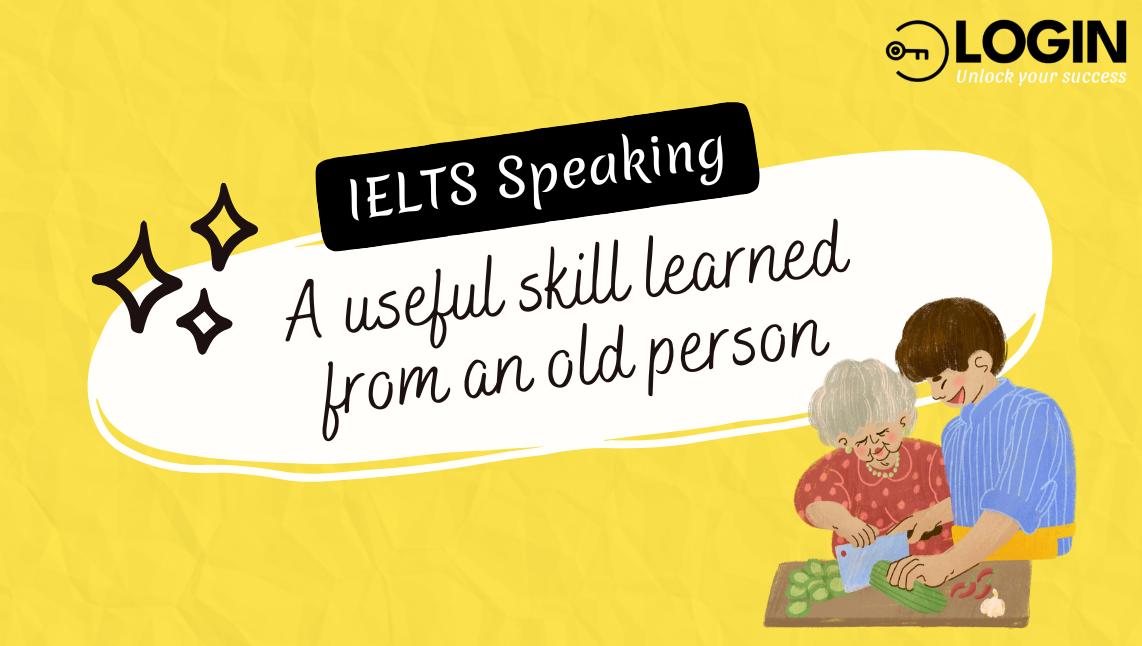Chủ đề "Describe a rule (in school or work) that you don’t like" là cơ hội để bạn thể hiện quan điểm cá nhân về một quy định mà bạn cảm thấy không hợp lý. Để giúp bạn trả lời câu hỏi này một cách tự nhiên và ấn tượng, IELTS Login sẽ cung cấp dàn ý chi tiết, từ vựng "ăn điểm" và các cấu trúc câu linh hoạt. Cùng tìm hiểu và luyện tập ngay nhé !
PART 2. Describe a rule (in school or work) that you don’t like
You should say:
- What it is
- Why you don’t like it
- How others feel about the rule
And explain whether you’ve followed the rule
One rule at school that I really didn’t like was the complete ban on using mobile phones, even during break times or lunch breaks.
Personally, I found this rule quite unreasonable because phones can actually be really helpful in many situations. For example, sometimes I wanted to check the time, search for information, or simply relax by listening to music during lunch. But the school had a very strict policy — if you were caught using your phone, it would be taken away and your parents had to come to school to get it back. I felt like we were being treated like little kids instead of being trusted to use our phones responsibly.
Most of my classmates shared the same opinion. We understood why phones shouldn’t be allowed during lessons, but during our free time, we felt it was a bit unfair. Some students even hid their phones and used them secretly in the toilets or behind their bags, which I think just shows how unpopular the rule was.
Personally, I followed the rule most of the time because I didn’t want any trouble. But I’ll admit — there were moments when I bent the rules a little. I believe rules are important, but they need to make sense and show a bit of trust in students’ ability to make responsible choices.
complete ban on: lệnh cấm hoàn toàn
unreasonable (ADJ): vô lý
strict (ADJ): nghiêm khắc
catch (VpII - caught): bắt gặp, bắt quả tang
hide (V-pII - hid): giấu giếm
take away (phrasal V): tịch thu
shared the same opinion: có cùng quan điểm
bent the rules: lách luật
FOLLOW-UP QUESTIONS
Do you think rules are always necessary in schools and workplaces? Why or why not?
I believe that rules are necessary in both schools and workplaces, but they need to be applied in a reasonable way. While rules help maintain order and ensure safety, if they are too strict or impractical, they can create unnecessary pressure and frustration. Rules are essential for maintaining structure and order. They set clear expectations for behavior, making it easier for everyone to understand their responsibilities. In schools, rules help ensure a fair and safe learning environment, like setting specific times for classes or preventing disruptions. Similarly, in workplaces, rules are crucial for maintaining professionalism, safety, and productivity. However, rules can sometimes become problematic if they are too rigid or do not reflect the actual needs of the situation. In conclusion, while rules are an essential part of maintaining order and fairness, they should be flexible and adjusted according to the circumstances.
apply in a reasonable way: được áp dụng một cách hợp lý
maintain order and ensure safety: duy trì trật tự và đảm bảo an toàn
impractical (ADJ): không thực tế
frustration (N): sự bực bội
disruption (N): sự gián đoạn
professionalism (N): tính chuyên nghiệp
problematic (ADJ): khó giải quyết
rigid (ADJ): cứng nhắc
PART 3.
1. What are the rules students should follow at school?
Students are usually expected to follow a range of rules to maintain a positive learning environment. One of the most basic ones is being punctual and attending classes regularly, which helps them stay on track academically. They should also show respect to teachers and classmates, both in terms of behavior and language. Another important rule is avoiding cheating or plagiarism, since academic honesty is taken very seriously. In addition, schools often encourage students to wear uniforms or follow a dress code to promote equality and reduce distractions. These rules not only help create order but also teach students responsibility and discipline, which are essential for their future.
maintain a positive learning environment: duy trì môi trường học tập tích cực
punctual (ADJ): đúng giờ
stay on track academically: duy trì tiến độ học tập
plagiarism (N): đạo văn
dress code: quy định về cách ăn mặc trong một tổ chức, trường học, hoặc sự kiện
discipline (N): kỷ luật
2. Are the rules at school good or bad?
Most school rules are generally good because they’re designed to create a safe and respectful environment for both students and teachers. For example, rules about punctuality or classroom behavior help reduce distractions and make sure that everyone can focus on learning. Of course, some rules might seem too strict or unnecessary, like banning certain hairstyles or phone use entirely. However, in most cases, these rules exist to support discipline and maintain order, rather than to control students without a reason. I think as long as the rules are fair and clearly explained, they can help students develop discipline and understand the importance of respecting boundaries.
punctuality (N): sự đúng giờ
exist (V): tồn tại
fair (ADJ): công bằng
boundary (N): ranh giới
3. Do people often violate the rules in Vietnam?
In my opinion, law violations are still fairly widespread in Vietnam. One typical example is the violation of traffic laws. Specifically, many people tend to run red lights, drive in the wrong direction, or ride motorbikes without helmets. Drunk driving is also quite common, especially during holidays or late at night. These behaviors not only break the law but also endanger both the offenders and other road users. Another area where law violations frequently occur is environmental protection. For instance, in both urban and rural areas, littering remains a significant problem, especially in public places like parks, beaches, and streets. On a larger scale, some factories illegally discharge untreated waste into rivers and lakes. Consequently, these behaviors have a negative impact not only on public health but also on the country’s image and natural beauty.
law violations: sự vi phạm luật
fairly widespread: khá phổ biển
run red lights: vượt đèn đỏ
Drunk driving (N phrase): lái xe khi say rượu
break the law (V phrase): vi phạm pháp luật
offender (N): người phạm tội
littering (N): vứt rác bừa bãi
discharge: xả (chất thải, nước thải), thải ra
4. What rules should children follow at home?
Yes, I believe there are certain rules that children should follow at home. First of all, children should stick to a fixed schedule. For example, in many families, parents set specific times for doing homework, going to bed, or using electronic devices. These habits help children become more organized and disciplined. Secondly, it is important for children to take part in household chores. Even simple tasks like cleaning their room, sweeping the floor, or wiping the table can teach them responsibility and cooperation, and respect for shared living spaces. Lastly, I think children should inform their parents about their daily plans, like where they are going, who they are going out with, and what time they will be back. This practice not only builds trust between parents and children but also ensures children’s safety.
stick to: tuân theo, bám sát
set specific times: đặt thời gian cụ thể
organized (ADJ): có tổ chức, ngăn nắp
disciplined (ADJ): có kỷ luật
cooperation (N): sự hợp tác
Xem thêm:
IELTS Speaking Part 2+3: Describe a useful skill you learned from an older person (Sample Answer)
IELTS Speaking Part 2+3: Describe an ambition that you haven’t achieved (Sample Answer)
IELTS Speaking Part 1: Feeling Bored (Sample Answer)
IELTS Speaking Part 2+3: Describe a movie you watched recently (Sample Answer)
_________________
Biên soạn bởi IELTS Login Academic Team
- Bài mẫu IELTS Writing Task 1 - Giải đề thi thật
- IELTS Speaking Part 2+3: Describe a historical period/ moment you would like to learn more about (Sample Answer)
- Bài mẫu IELTS Writing Task 1 - Giải đề thi thật
- Dịch đề và phân tích đáp án chi tiết IELTS Reading (Actual Test - Vol 1 Test 4)
- IELTS Speaking Part 2+3: Describe a rule (in school or work) that you don’t like (Sample Answer)
- Bài mẫu IELTS Writing Task 2 - Giải đề thi thật
- Giải đề IELTS Listening (Actual Test - Vol 1 Test 1)
- IELTS Speaking Part 2+3: Describe a useful skill you learned from an older person (Sample Answer)








